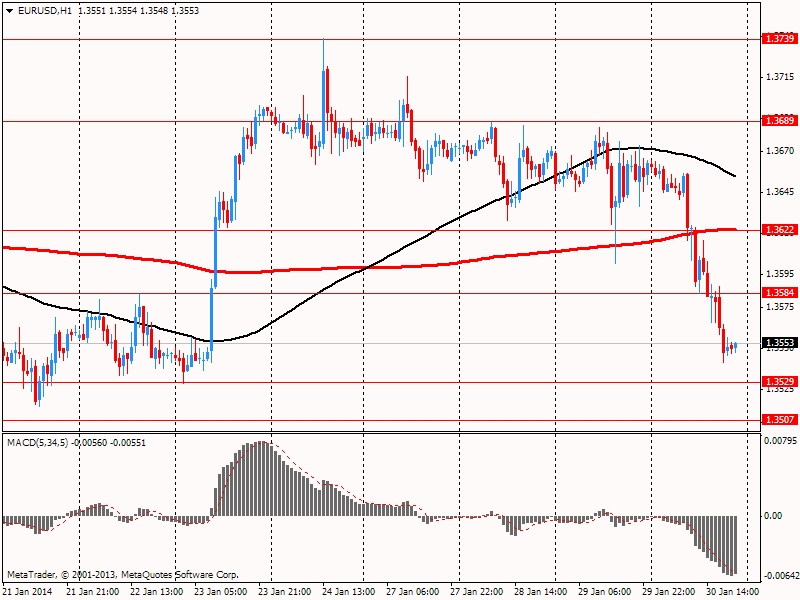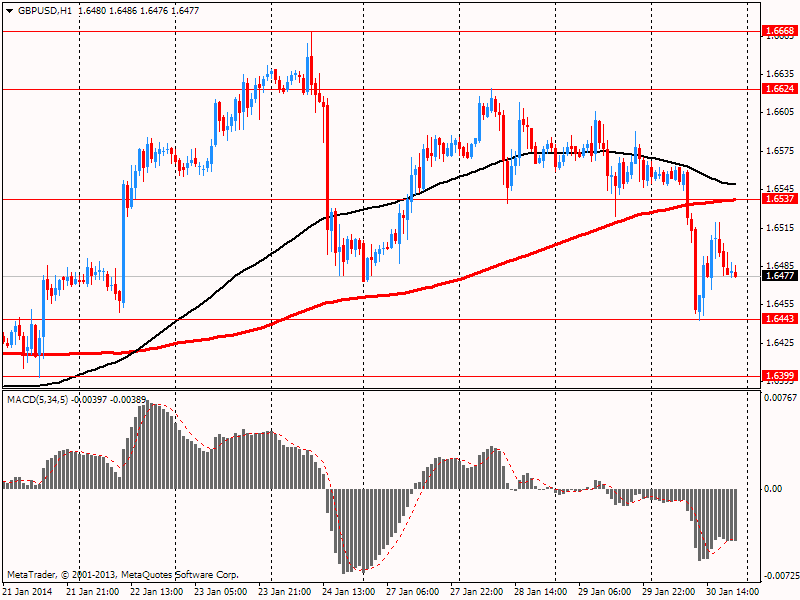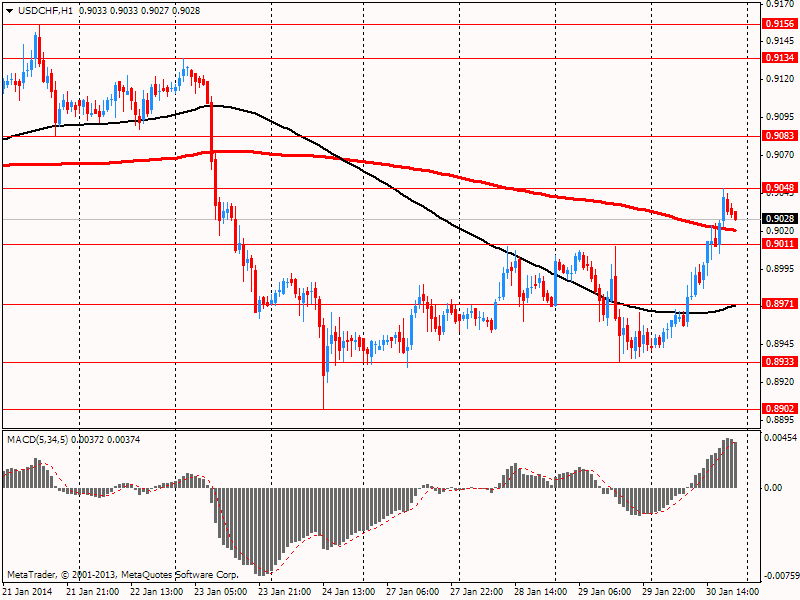- Analytics
- News and Tools
- Market News
- American focus: the euro has fallen against the U.S. dollar
American focus: the euro has fallen against the U.S. dollar
The euro exchange rate dropped significantly against the dollar, after the German CPI data were worse than expected , bringing the EU one step deflation . The euro has also provided a report on the U.S, which confirmed estimates of economists. As it became known, consumer price inflation in Europe's largest economy fell to 1.3 percent in January from 1.4 percent in December. The forecast was for an inflation rate of 1.5 percent. Consumer prices fell by 0.6 percent compared to December, when they recorded an increase of 0.4 percent. Economists had expected a drop of 0.4 percent.
With regard to U.S. data, they showed that the gross domestic product, which is the broadest measure of goods and services produced in the economy , rose to a seasonally adjusted annual rate of 3.2% in the fourth quarter. Economists had expected in the fourth quarter activity will grow by 3.2%. Overall, in 2013 the economy grew by 1.9%. The last time the economy grew by more than 3 % per annum before the recession , when it reached 3.4% in 2005. In 2012, GDP grew by 2.8%. Recent GDP data show that the economy expanded by 3.7% in the second half of 2013. This rate was much higher than the growth of 1.8% in the first half of this year. This is the highest growth rate in the second half of 2003, when the economy expanded by 5.8%.
Pound has fallen markedly against the U.S. currency, which was associated with the publication of weak data on Britain. The report showed that the number of approved applications for mortgage loans in the UK in December rose less than forecast , but this figure was the highest in the last six years. The number of permits for house purchase rose to 71,638 in December from a revised 70,820 in November. Economists had expected the figure to rise to 72,500 by November initial 70,758 . The latter figure is the highest since January 2008, when the number of mortgage approvals was 71,999 . Loans secured by housing increased by 1.7 billion pounds , while economists expected an increase of 1.2 billion pounds. Consumer loans increased by 0.6 billion pounds, while economists had expected growth to 0.7 billion pounds.
We also learned that the monetary aggregate M4 lending decreased by 1.4 percent on a monthly basis , after growth of 0.1 percent in November. In annual terms M4 rose 0.2 percent after jumping 2.7 percent in the previous month.
The Swiss franc lost nearly 100 points against the dollar amid falling demand on the franc as a safe haven , which was celebrated earlier this week . Couple also declined due to persisting worries about the spread of " contamination " in emerging markets, after the Turkish Central Bank was forced to raise rates to slow the fall of the Turkish lira .
Furthermore, the pressure on the franc had a report that showed that the indicator of economic activity in Switzerland rose tenth consecutive month in January, although at a slower pace, which indicates a good beginning of the new year. Such survey data, published by the Institute KOF.
The index of leading economic indicators rose from KOF to 1.98 in January from 1.95 in December, marking the tenth consecutive increase. The last time it reached a comparable level in July 2011 . Rise was driven mainly by improved domestic consumption. In January lending business has stabilized , while the construction sector has slowed somewhat . Recall that in the third quarter , the Swiss economy expanded faster than expected pace of 0.5 percent in the quarter dimension, with the same rate of expansion , as was shown in the previous three months . Exports and investment were the main growth drivers.
© 2000-2026. All rights reserved.
This site is managed by Teletrade D.J. LLC 2351 LLC 2022 (Euro House, Richmond Hill Road, Kingstown, VC0100, St. Vincent and the Grenadines).
The information on this website is for informational purposes only and does not constitute any investment advice.
The company does not serve or provide services to customers who are residents of the US, Canada, Iran, The Democratic People's Republic of Korea, Yemen and FATF blacklisted countries.
Making transactions on financial markets with marginal financial instruments opens up wide possibilities and allows investors who are willing to take risks to earn high profits, carrying a potentially high risk of losses at the same time. Therefore you should responsibly approach the issue of choosing the appropriate investment strategy, taking the available resources into account, before starting trading.
Use of the information: full or partial use of materials from this website must always be referenced to TeleTrade as the source of information. Use of the materials on the Internet must be accompanied by a hyperlink to teletrade.org. Automatic import of materials and information from this website is prohibited.
Please contact our PR department if you have any questions or need assistance at pr@teletrade.global.


















